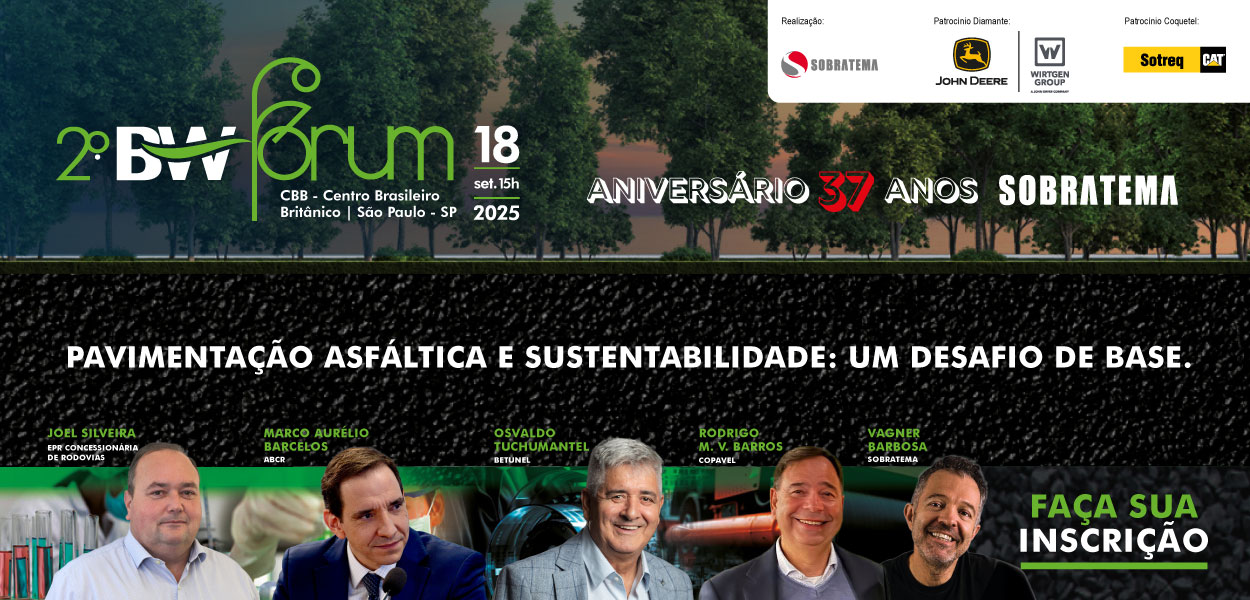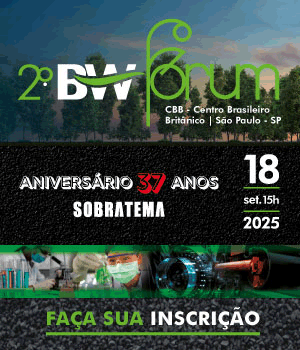Facing strategic challenges
In a meeting at Fiesp, representatives of the construction chain analyze the main bottlenecks and point out solutions to overcome the low productivity of the industry
Five structural questions represent the main bottlenecks that harm the complete development of the Brazilian industry of construction machine and equipment. These questions are compromising the competitiveness of the manufacturers and preventing the whole construction chain to reach its complete capacity of production and to confirm its importance in the country’s economy. These questions are: lack of qualified labor, physical and tax barriers, lack of planning in worksites, inappropriate alternatives of investment for the industry and problems in aftersales.
This was the evaluation presented by the engineer Afonso Mamede, president of Brazilian Association of Technology for Construction and Mining (Sobratema) in a meeting carried out by the working group of Responsibility with Investment of the Construction Industry Department (Deconcic) of the Federation of Industries of the State of Sao Paulo (Fiesp) carried out in last July 21. According to Mamede, other questions of the same importance bring negative impacts to this industry, such as the slow liberation of design by the government, which stops works. “Resources have to be liberated in a predictable way and law and environment questions have to be solved more quickly. For contractors, it is necessary an evolution in the previous analysis of risks and in the compliance of deadlines, in addition to a long-term vision”, adds him.
The Deconcic was created by Fiesp with the purpose of joining representatives of the private industry and of the government to develop actions that could discipline the contracting of works, the allocation of resources and the purchasing of materials and equipment, unlocking interferences. The questions discussed and the diagnoses developed during the meetings of the Work Group resulted in proposals that will be presented in the 11th Construbusiness—congress of the industry that is carried out each two years by Fiesp—to establish targets for development and competitiveness of the construction chain.
About the question of labor, Afonso Mamede pointed out the lack of qualification that interferes in safety and quality of works, reduces productivity and increases the waste of resources. He alerts that we have to invest in the certification of labor through independent and qualified professional organizations to overcome this bottleneck.
The engineer criticized the lack of competitiveness of the industry due to tax and customs barriers, such as Services Tax (ISS) related to operations on the total price of the equipment and tax law about concrete precast elements.
According to Mamede, one of the problems in the liberation of investments is the price-based evaluation of contracts. “Low costs impact on work quality˜, pointed him. He said also that a review in the model of auctions and a different analysis of the contracts developed through the Differentiated Regime of Contracting (RDC) and Public-private Partnerships (PPPs) are needed.
Finally, the industry is passing through difficulties to get spare parts, not only due to the lack of labor for assemblage but also due to factors such as high prices, lack in the market and delay in sending and delivering parts.
INDUSTRY BOTTLENECKS
Labor
• Low productivity and high waste
• Low industrialization of worksites
• Lack of labor qualification interferes in safety and quality of works
• Training and qualification: training is essential and courses must have technical, theoretical and practical content
• Labor Certification by independent qualified professional organizations
Law and tax barriers
• Development and enforcement of interstate acts about transportation and machine travelling in the national territory
• Creation of a single tax similar to IVA
• Rental: lack of competitiveness due to Services Tax (ISS) calculated on the total cost of the equipment
• Tax laws for industrialization of concrete precast components
Lack of planning on worksites
Government:
• Non-compliance of the established work planning
• Work stops and/or slowness in design liberation
• Failures in project management
• Law and environmental issues
• More predictability in the liberation of resources
Contractors:
• Difficulties in long-term vision
• Inappropriate evaluation of resources
• Previous analysis of project risks
• Accomplishment of scheduling
• Reduction in the necessity of contract additives
Rental companies:
• Long-term investments
• Intensive application of capital
• Critical factors:
• Cost of capital
• Predictability
• Tax simplification for fleet motion
• Labor qualification
• Poor logistics
Investments
• Evaluation of work contracts based only on prices
• Low cost: impact in the quality of works
• Revaluation of auction models: Differentiated Regime of Contracting (RDC) and PPP’s
• Legal certainty in long-term operations
• Financing
Aftersales

Legal uncertainty
Fernando Valverde, president of National Association of Producing Entities of Aggregates for Civil Construction (Anepac)—that presented an analysis of the related industry in the event carried out by the Deconcic—agrees with Afonso Mamede in his evaluation of the problems caused by law and tax barriers. According to him, the high tax charge and the different tax rates in each state—in addition to make unfeasible the efficiency of logistics—cause growing difficulties to get licenses and compromise the planning of the companies. “The industry is excluded every time that a directing plan is developed, said Valverde, using as example the municipalities of São José dos Campos and Caraguatatuba (SP), where—according to him—sand extraction is forbidden. “This is extremely serious.”
Another bottleneck highlighted by Valverde was the legal uncertainty. Citing the new regulatory framework, he said: “A very deep change was carried out and the industry is being penalized”, emphasized him. According to the president of Anepac, the country is abundant in sand but due to the restrictions, the companies have to take this material more and more far. “The whole transport is carried out by truck. Sand and gravel will never lack, but nobody knows to what level prices will arise.”
According to him, what is missing for the sector is planning. “I consider an absurd the management being carried out by the Federal Government”, ended Valverde, suggesting the decentralization of the subject to the state governments that are prepared to go on with this management.

Av. Francisco Matarazzo, 404 Cj. 701/703 Água Branca - CEP 05001-000 São Paulo/SP
Telefone (11) 3662-4159
© Sobratema. A reprodução do conteúdo total ou parcial é autorizada, desde que citada a fonte. Política de privacidade











